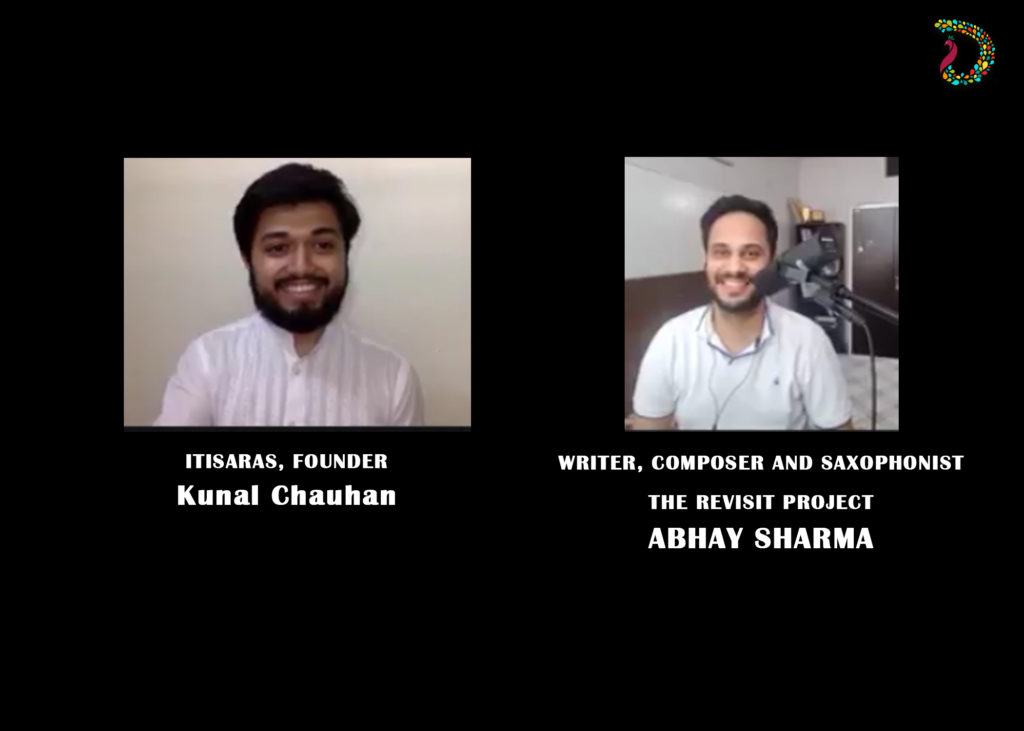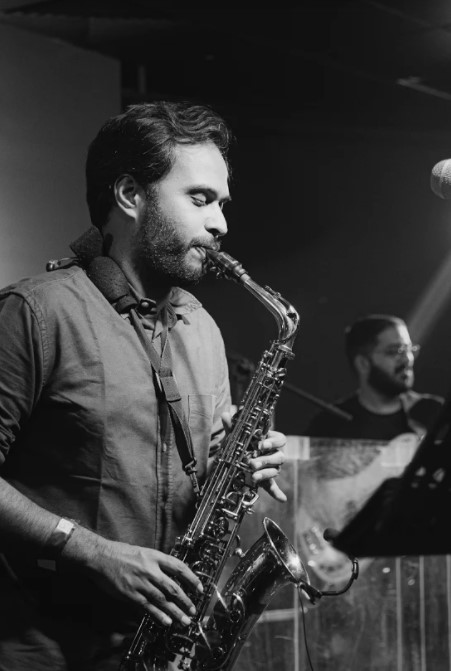
The pandemic has infiltrated every nook and cranny of our lives and has thwacked our morales which have hit new lows with each passing day. For the people involved in the Performing Arts industry, something as highly emotive and interactive as their preferred form of art has been adversely impacted.The pandemic has not been kind to them. In this interview with Abhay Sharma, a renowned saxophone player, elaborates on how the pandemic has struck the music industry in particular.
The entertainment industry thrives on human interaction – performing for a live audience is crucial for the survival and benefit of a musician. ‘Music industry primarily works within this small paradigm of working as a live musician, which is what pays the most amount of money. The other thing is making music in a studio which doesn’t really guarantee you money instantly -since you have to produce,mix and master and eventually put it out to see the kind of response it gets’ says Abhay. Since the pandemic hit, people have tried doing online gigs but that has not worked out- as long as you don’t get to meet other humans it is not worthwhile. The fates of all the industries which are intertwined with the music industry – film, food and beverage- if one industry stops functioning the rest will follow suit. For the time being, it’s a no-go zone.
Speaking of his own experience with online performances, Abhay speaks about the lack of infrastructure with respect to the same which makes the whole idea of performing music virtually disheartening. The entire premise of a live show is that the experience is visceral and in your face- ‘Like for example you can’t watch a metal gig from home. People do it for the experience – there’s mosh happening and then there is that loud guitar- you go there to put out your angst and live in the moment.’ Abhay tells. If the present scenario doesn’t change, there will come a situation where everything will have to be encapsulated within this modern way of viewing a performance through a camera, which will definitely defeat the thrill and purpose of these arts. ‘We will have to open up soon, otherwise this will not work out’, says Abhay.

The idea of digital spaces translating into appropriate platforms for these sharing and learning music is still speculative- you can definitely learn music virtually, but in a very rudimentary manner. ‘Without human interaction,’ Abhay says, ‘ music in particular, is impossible.’ Even the definition of music in Hindi itself- the word ‘sangeet’ (sang-geet) calls for it.
The impact of the pandemic on the music and arts industry as a whole has been severe. The way artists live their life is very in the moment- even if there is little money there, they pursue their hobbies because of their passion. ‘Musicians don’t plan out things financially at all,’ says Abhay and that is the biggest impact- musicians who did not save money during their heydays. Anything can occur at any given point of time and thus you should be a little more prepared about these things. The indefatigable hope of never hitting a low point or running out of work on which the entertainment industry runs finally gave out under the unprecedented weight of the pandemic. The situation has thus been very devastating on people who unfortunately weren’t the best planners. It is essential to do so, says Abhay especially in an industry as unstable and poorly managed as the music industry. The only lesson we can take away from this scenario is that it has taught us how to behave around such a situation.
Abhay’s advice for budding musicians and for people who are interested in the field of music – is to read Charles Darwin. ‘Because at this point of time it’s literally the survival of the fittest ‘, he says with a grim smile. Young musicians, he goes on, unfortunately don’t prepare for the rainy days. Music is so informal- in terms of the travel involved, the mental agony and burnout situations, the loneliness that hits you once you walk in through your door after a day of performing- you need to brace yourself for it and be mentally strong.
Talking about the impact of social media on a performer’s creativity, Abhay looks at it as a gift. People consider social media as an escape from the drudgery of their day – and you only have a few seconds to pull them in before their attention moves on to the next thing. ‘You will never be the superstar of social media because there is no one social media that will only cater to you.’ Abhay states. Anything can go viral- it does not matter if you spent days or just an hour working on it- everything is so unpredictable. Social media does make you want to accomplish more- but once you buy into it, it’s a never-ending saga of clicks, likes and followers with no definite winner. He believes in looking at it as a gateway- a way of telling people that you exist and putting out content every once in a while at your own pace to update people about your whereabouts.

About his own future plans, he will be putting an album out soon and thinks he can manage to sustain in this situation for the next few years- but he does not want to claim anything for the future as it is volatile. He thinks this is the time to sorting fundamentals out musically and keep on practising- it’s almost like reacting to something. ‘Life has become a jazz gig’, he says- you just have to keep on improvising.
Click below to watch the full interview:
The fate of the performing arts sector is so very significantly entwined with our daily lives- stimulating our creative passions and allowing us to reconnect with traditions, allowing us respite from drab days. To showcase our gratitude in these onerous times , Itisaras has started a petition on change.org (http://chng.it/zhFTnGdPMm)- urging the Ministry of Culture to extend support to artists, performers and technical staff- to the people employed in this industry, and support for the art itself. Please support us in this endeavour to propel this industry which impacts millions of people by signing and sharing it across all platforms.



